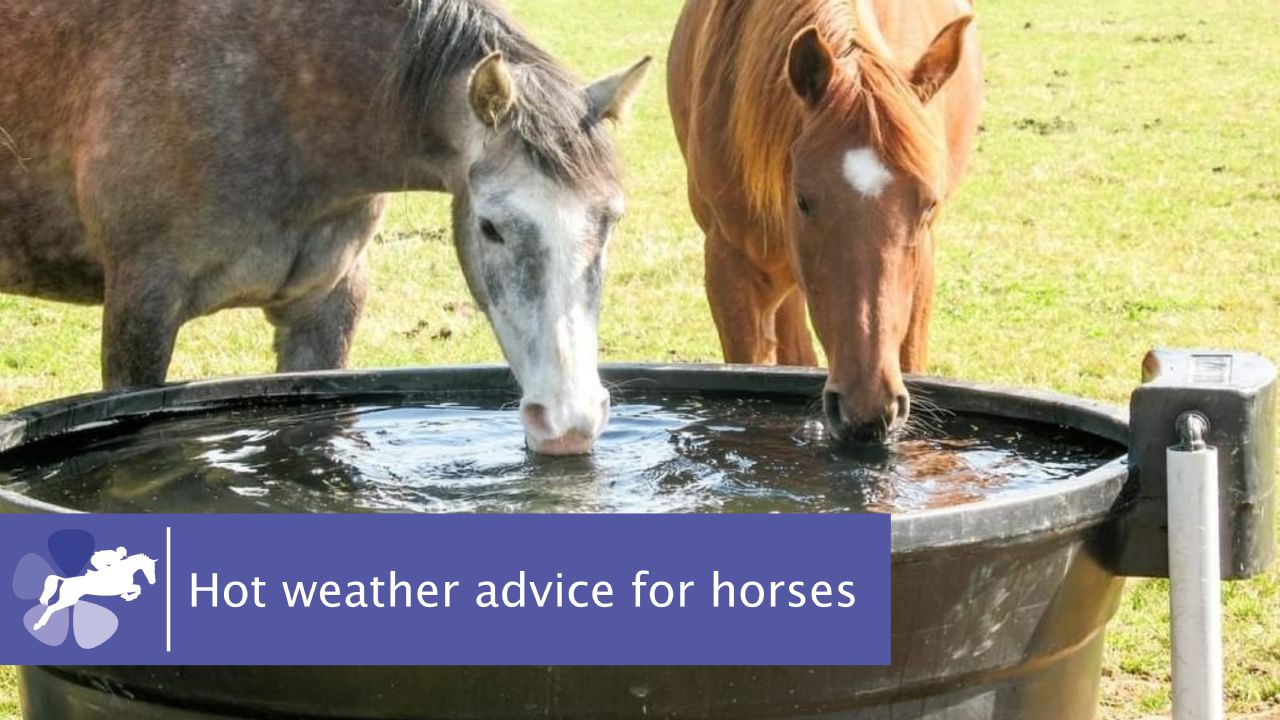Why do we recommend feeding horses from ground level?
How does the horse's jaw work? What happens if horses eat above ground level? Read the article to learn more...

The higher temperatures we are currently experiencing in the UK can cause havoc for some of our horses. Older horses, those that have underlying health conditions, heavier horses and those who have held coats can be particularly affected.
Our top tips are:
• Ensure the water supply is good, and fresh clean water is available at all times.
• If you soak hay, limit this to a maximum of one hour immediately before feeding. The longer it is wet, the more acid producing bacteria proliferate. • Aid hydration with soaked pelleted forages. Blue Bag Grass Pellets, Lucie Nuts, HayCare and NEW Meadow Forage Pellets are all good as also is soaked PuraBeet. Soak times are typically less in very warm weather. Store soaked feeds in a cool, ventilated area.
• Horses lose moisture in hot weather even if you do not notice they are sweating. Salt is important for horses as their sweat is saltier than their blood. Provide a salt lick such as our Salt Lick Tub or add Summer Salt to the feed or water. Salted water is a great way to maintain electrolyte and fluid balance especially when horses are working but have plain water available as well. 1.5 measures of Summer Salt to a standard stable bucket is salty enough to help, but weak enough not to cause any problems.
• Be aware that horses turned out with no shade, or prevented by a dominant horse from using it, those in horse boxes (travelling or stationary), those wearing rugs including fly rugs and hairier horses can all be affected by heat. Bigger and heavier horses are more likely to be affected than slimmer models, as it is harder for them to dissipate heat.
• Go easy when it is very hot. Ride early or late to avoid the heat and choose the shady side of the track. Try to avoid fast work. If you are unsure if it is too hot to ride watch our 'Heat Index' video below.
If you are concerned your horse is overheating you need to call your vet, but in the meantime, it is worth hosing with plenty of cold water, keeping the horse out of the sun and finding any bit of breeze there is. A stable may not have sufficient air flow. Concentrate most on thin-skinned areas as the blood is nearer the surface – neck, shoulders, between the legs. Allow the horse to drink as much as it wants (including salted water) and if it is not drinking, encourage this with grazing, soaked feed and wet hay. Soaked beet pulp (PuraBeet) is the best way to get a horse to eat water as it absorbs 5 times its volume of water.
Please contact our Feed Line on 01728 604 008 or email info@simplesystem.co.uk for free individual feeding advice for your horse. Our Feed Line is available Monday to Friday 9am - 5pm. You can also request advice at any time by completing our online advice request form here.
How does the horse's jaw work? What happens if horses eat above ground level? Read the article to learn more...
We're thrilled to be adding an exiting new event to the calendar for 2026!
Horses’ teeth change throughout their lives - they are continually growing and continually wearing, as they chew and grind their grazing and forage.